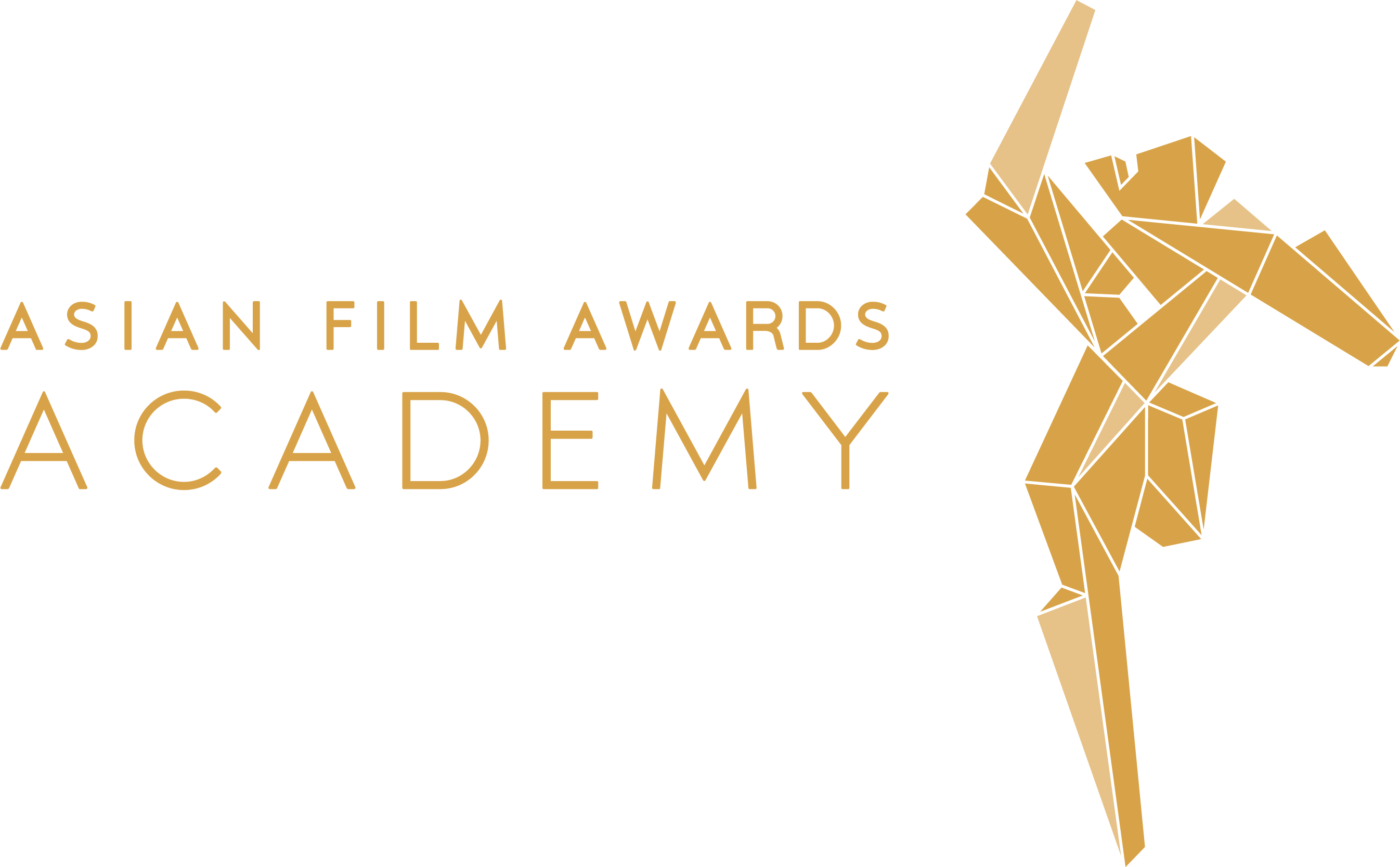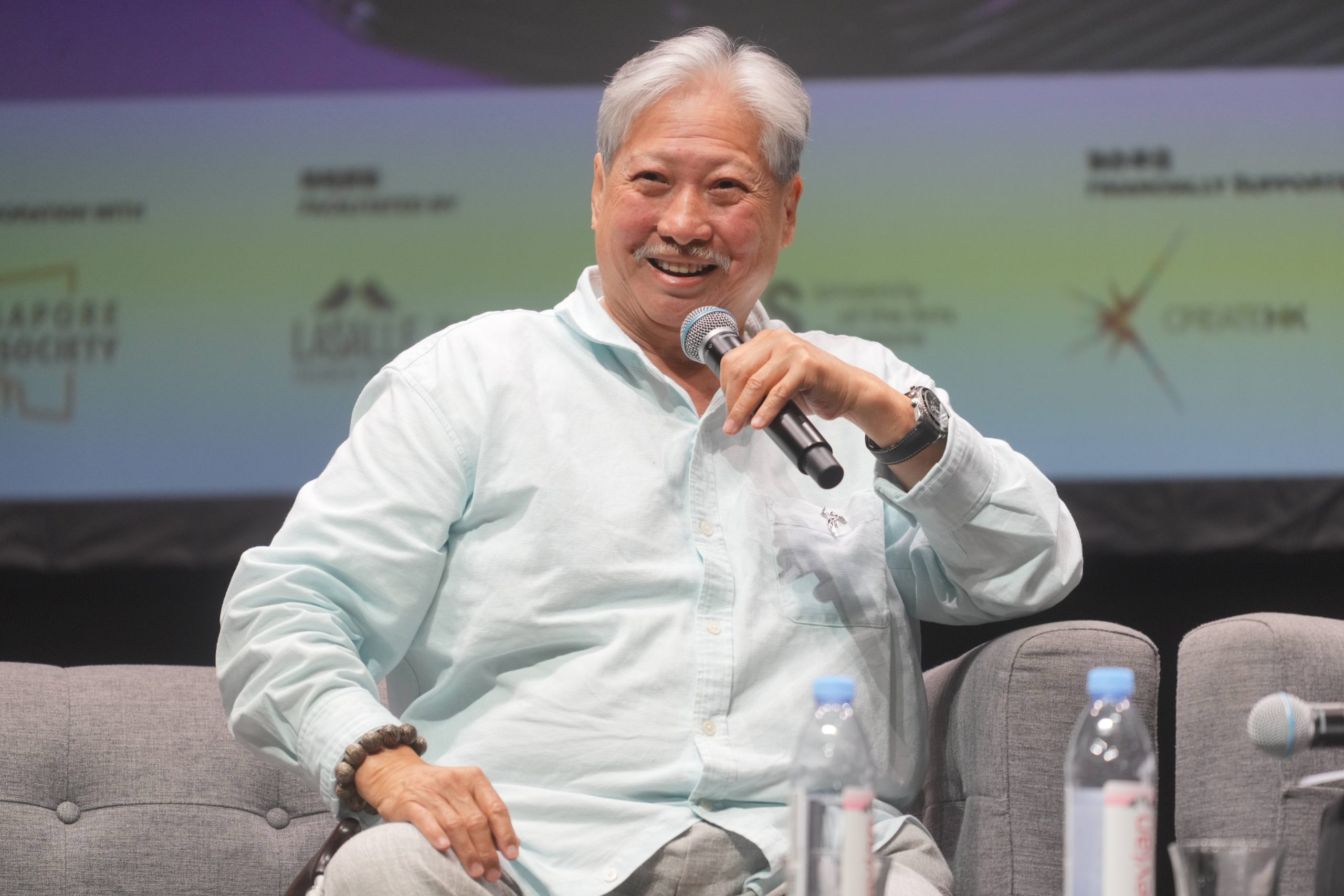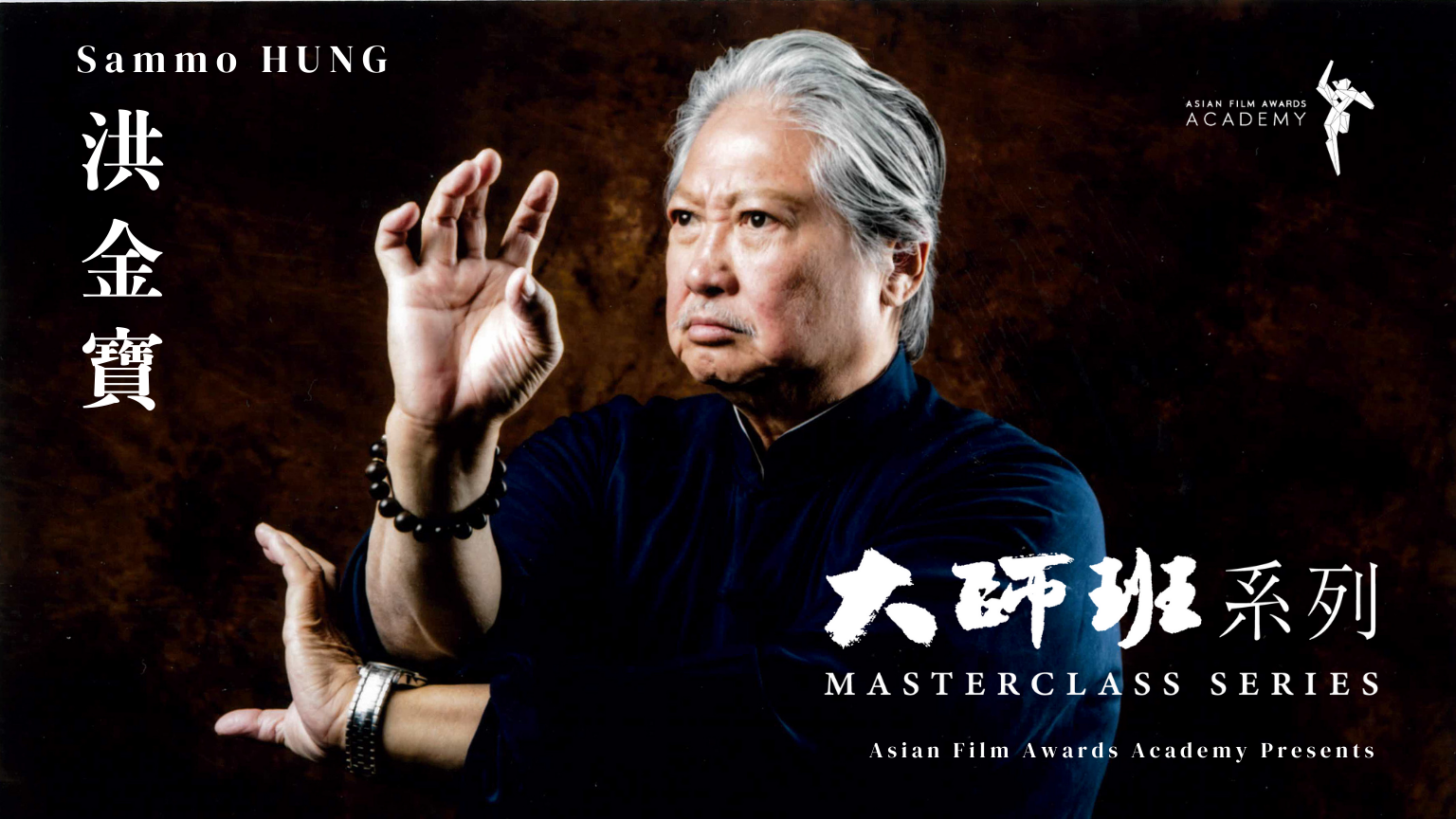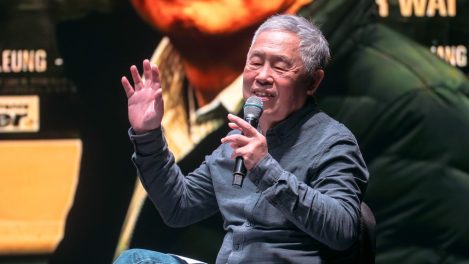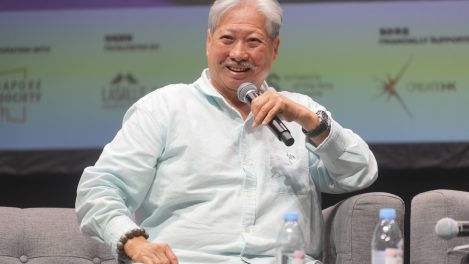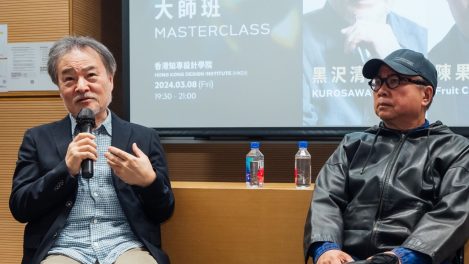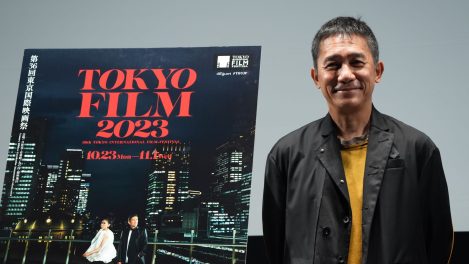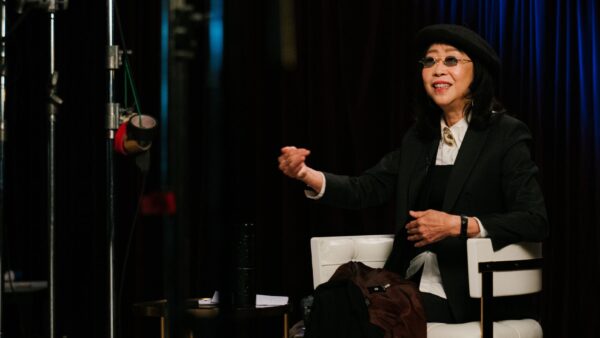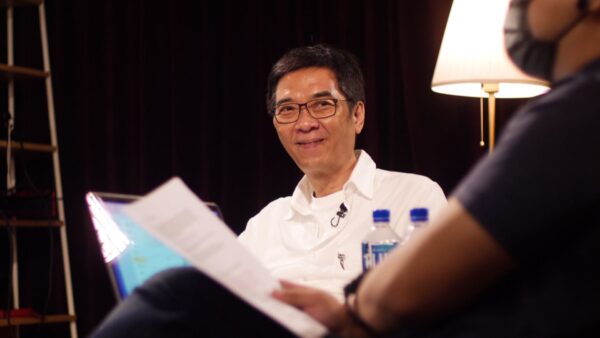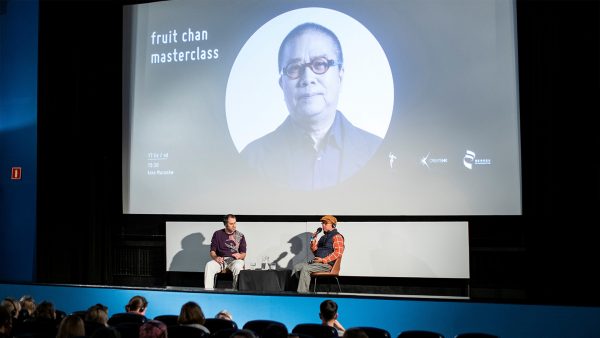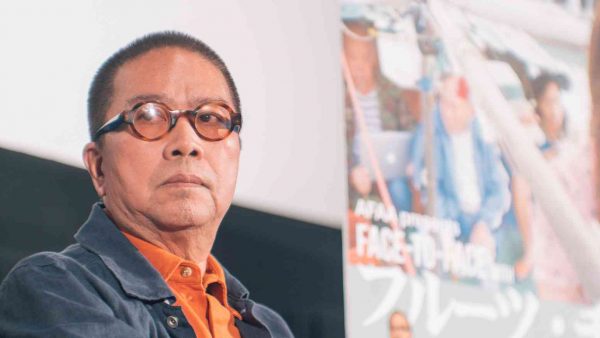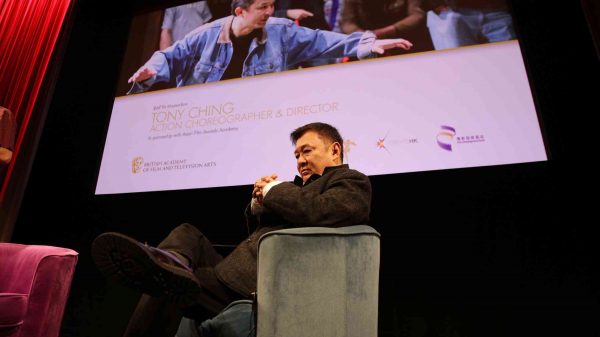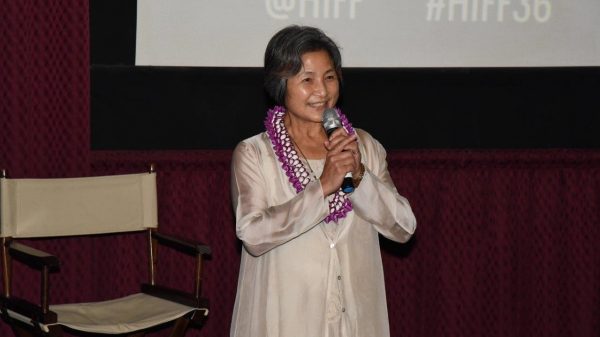サモ・ハン・キンポー
Know Your Vision, Preserve Your Mind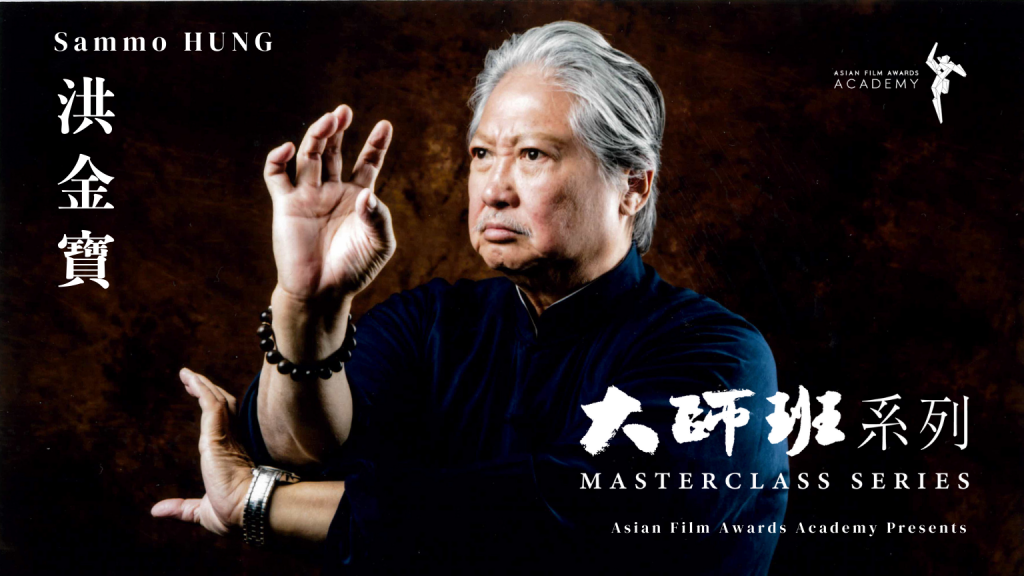
Date: 4 May 2024
Location: Singapore (SIA Theatre of LASALLE College)
Guest: Sammo Hung
Moderator: Kenneth Tan
Partner: Singapore Film Society
Sammo Hung traveled to Singapore to attend the “Masterclass Series” events organized by the Asian Film Awards Academy, including screenings of two of his self-written and directed films — “Warriors Two” and “The Bodyguard,” a press conference, and the highlight, a masterclass session. There, he met with local filmmakers, media, and cinephiles to exchange ideas and share his experiences from over sixty years in the film industry. He expressed his feelings about the current state of the Hong Kong film industry, and shared his perspectives on the future of Hong Kong martial arts cinema.
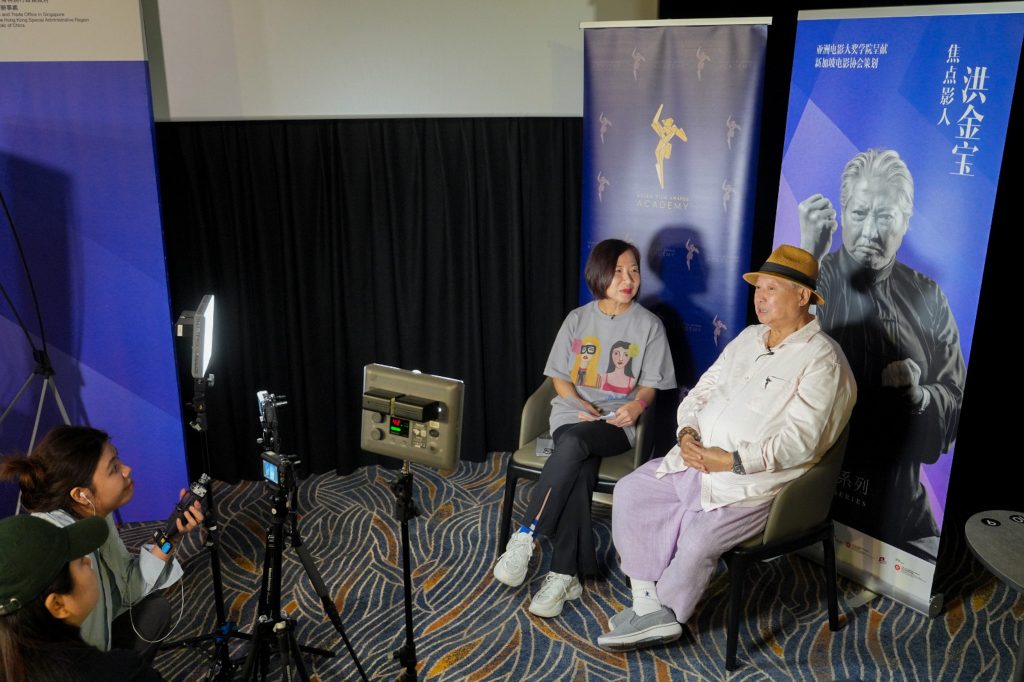
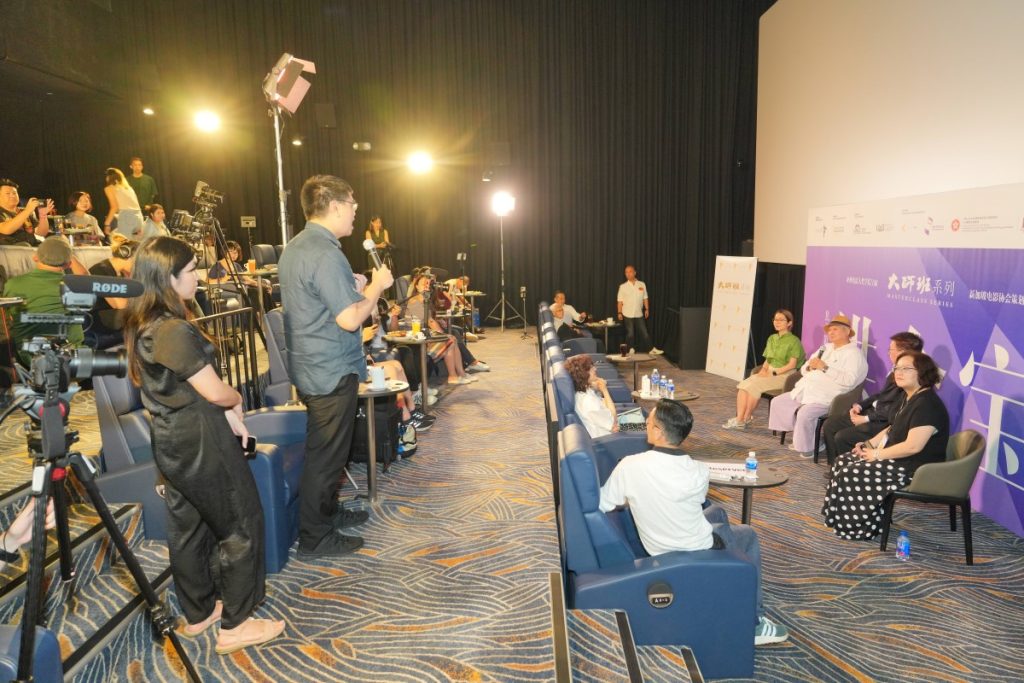
The “Sammo Hung Masterclass Series,” organized by the Asian Film Academy and co-organized by the Singapore Film Society, with the support of Create Hong Kong and the Film Development Fund, and the backing of the Hong Kong Economic and Trade Office in Singapore, were successfully held in Singapore from May 3 to May 5, 2024.
The “Sammo Hung Masterclass” series kicked off on May 3 with a press conference where Sammo Hung met with Singaporean media and local filmmakers. The event began with welcoming speech from Josie Lin, Executive Director of the Asian Film Awards Academy and the International Film Camp, and Kenneth Tan, Chairman of the Singapore Film Society. During the press conference, Hung answered questions from journalists with wit and humor. Local major newspaper Lianhe Zaobao described Sammo Hung, who is now seventy-two, as having “a sharp gaze and an undiminished passion for martial arts films.” The local main television channel, CNA, also conducted an exclusive interview with Hung to discuss his insights on filmmaking, his experiences shooting movies in Hollywood, and his future plans, describing him as a “Martial Arts Legend.” Moreover, Singaporean martial arts choreographer Sunny Pang, along with representatives from Lianhe Zaobao, presented flowers and gifts to Hung as a mark of respect during the press event.
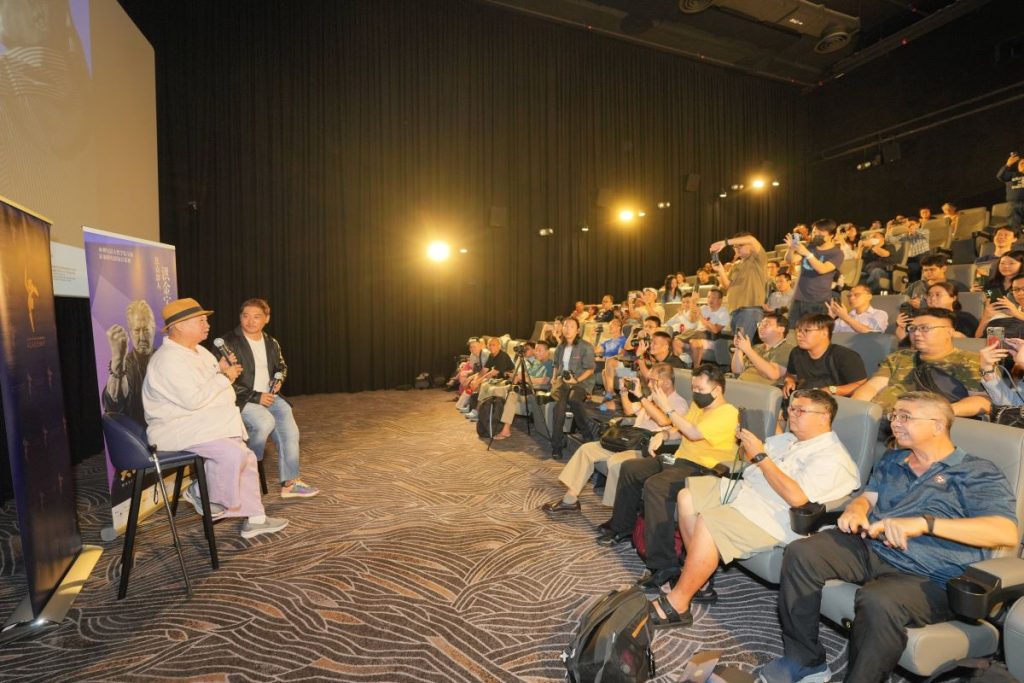
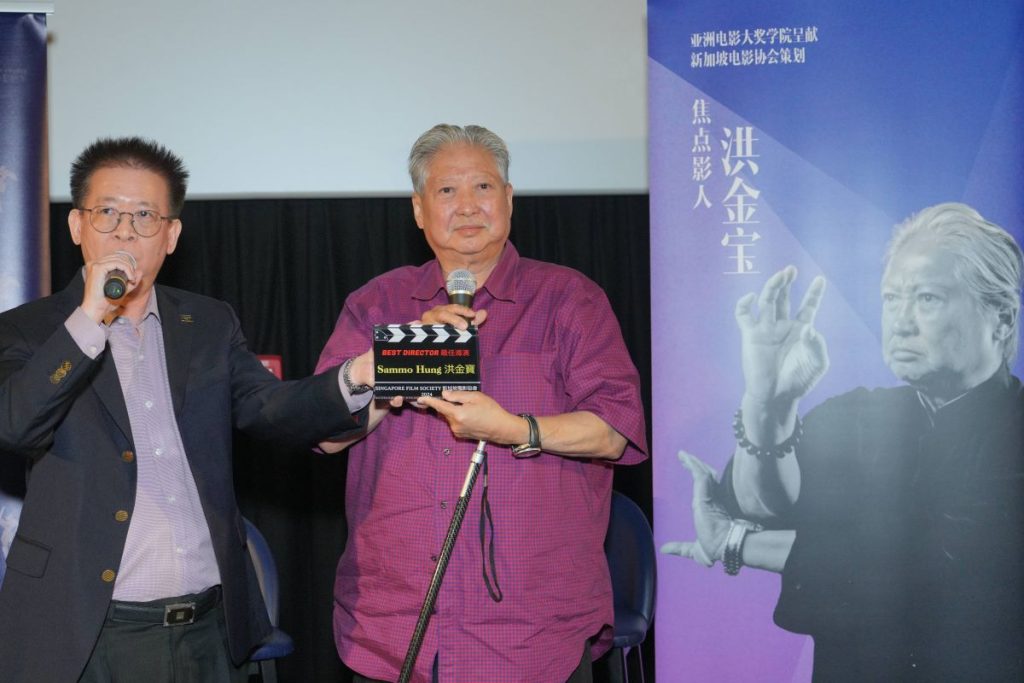
In addition, Sammo Hung attended screenings of two of his self-written and directed films, “Warriors Two and “The Bodyguard,” where he engaged with local film enthusiasts. “Warriors Two,” the second film in Hung’s career where he directed and starred. Hung expressed his gratitude to the audience for their participation, and looked forward to meeting them again during the masterclass. “The Bodyguard,” a more recent project where Hung also served as the director, lead actor, and stunt directed, prompted questions from the audience eager to learn more about the creative concepts behind the film. Hung shared stories from the film production. Furthermore, the Singapore Film Society honored Hung with a special award to recognize his achievements and his longstanding contributions, creativity, and dedication to the film industry.
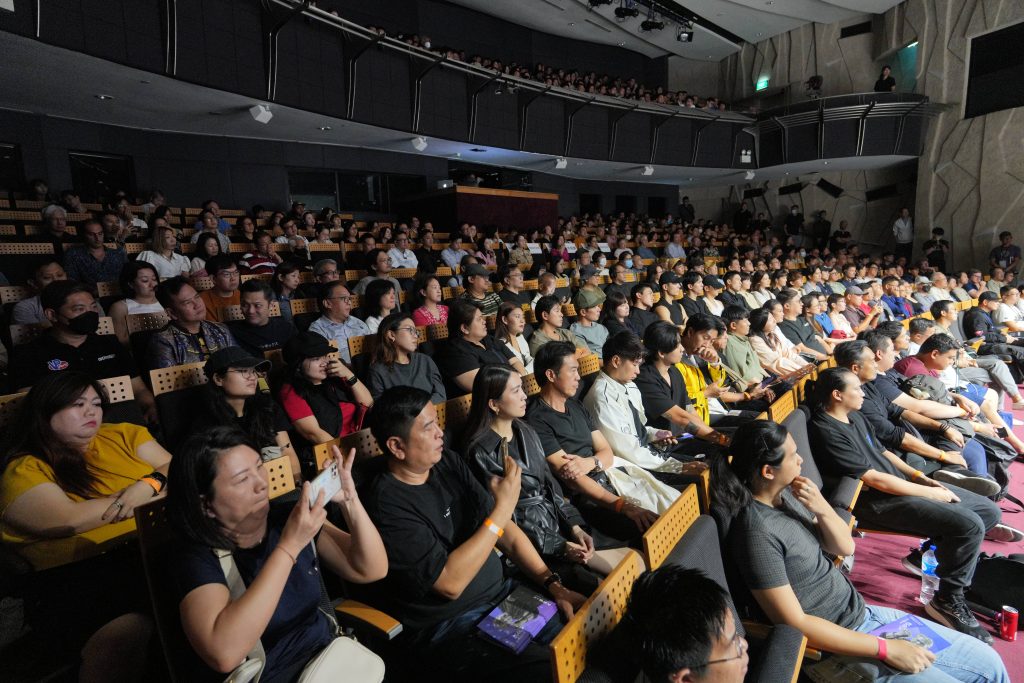
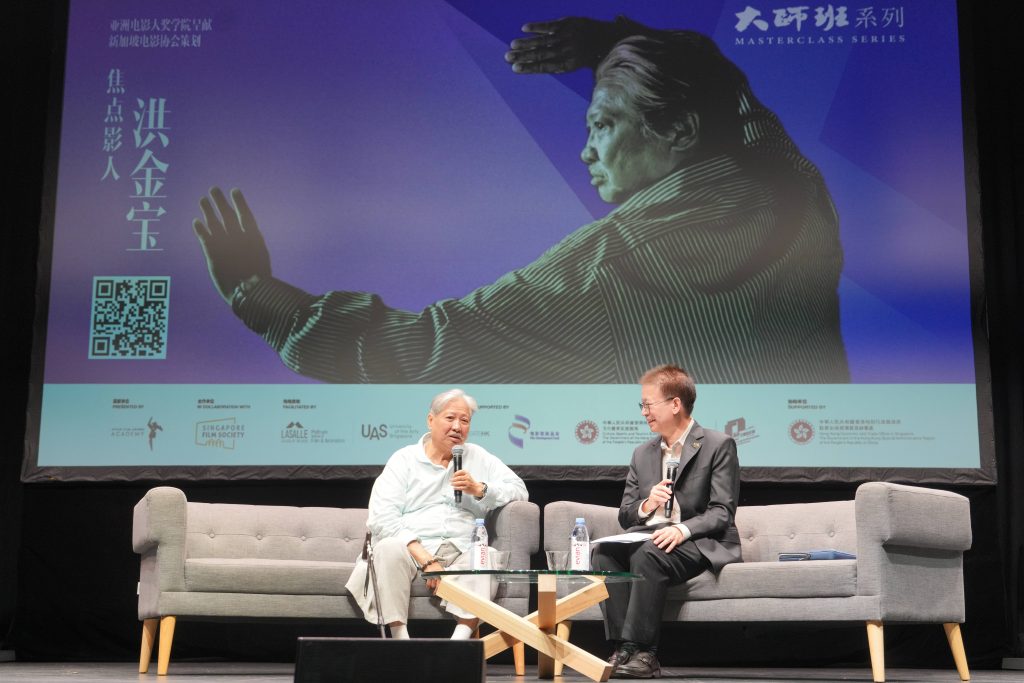
The masterclass lecture by Sammo Hung took place on May 4 at the SIA Theatre of LASALLE College of the Arts, hosted by Kenneth Tan, Chairman of the Singapore Film Society. The venue, with nearly five hundred seats, was fully booked, making tickets in Singapore highly sought after. During the lecture, Hung shared his journey from learning martial arts as a child, debuting as a teenager in film, to later establishing one of the most significant martial arts groups in Hong Kong — the “Sammo Hung Stunt Team.“ He actively recruited talent and participated in the film industry, eventually starting to write and direct his own films. Later, he pioneered the integration of martial arts with elements of different film genres, sparking a golden era for Hong Kong action films.
Sammo Hung began by recounting his rigorous martial arts training during his childhood, noting that while Kung Fu is easy to pick up, it is difficult to master. He endured many injuries while practicing the basics and even considered giving up at times. He spoke humorously about the strict discipline of his mentor Yu Jim-yuen, who believed in the “spare the rod and spoil the child” approach to teaching. Despite the hardships, Hung recalled how Yu, despite being financially strapped when he first arrived in Hong Kong from mainland China, generously imparted his lifelong Kung Fu skills to his students without charging them a single cent that he is thankful for Yu’s teaching and care.
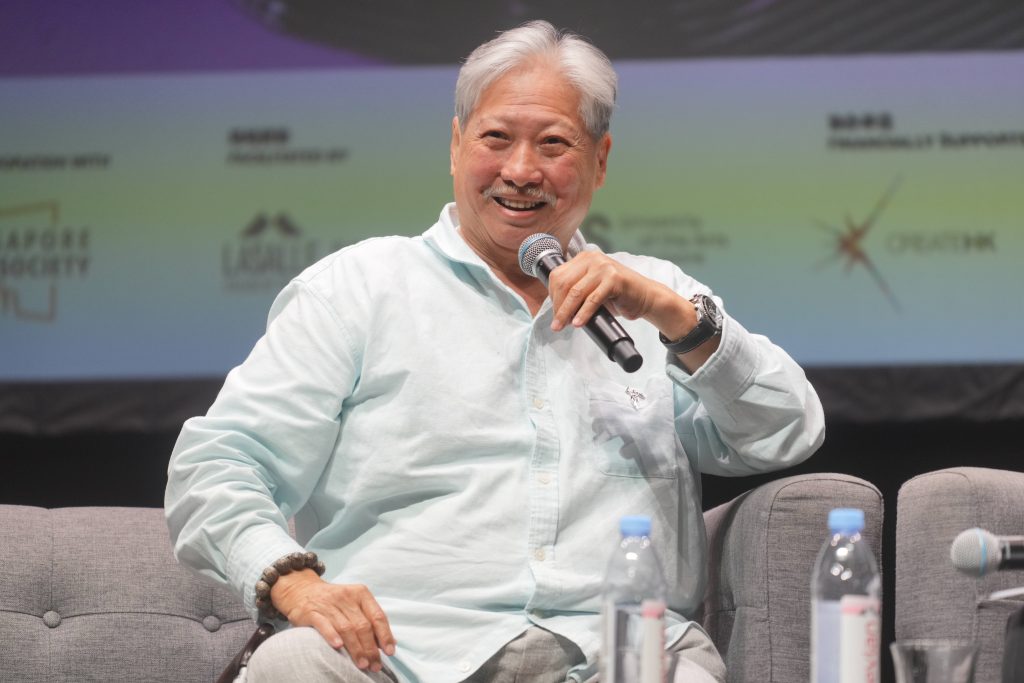
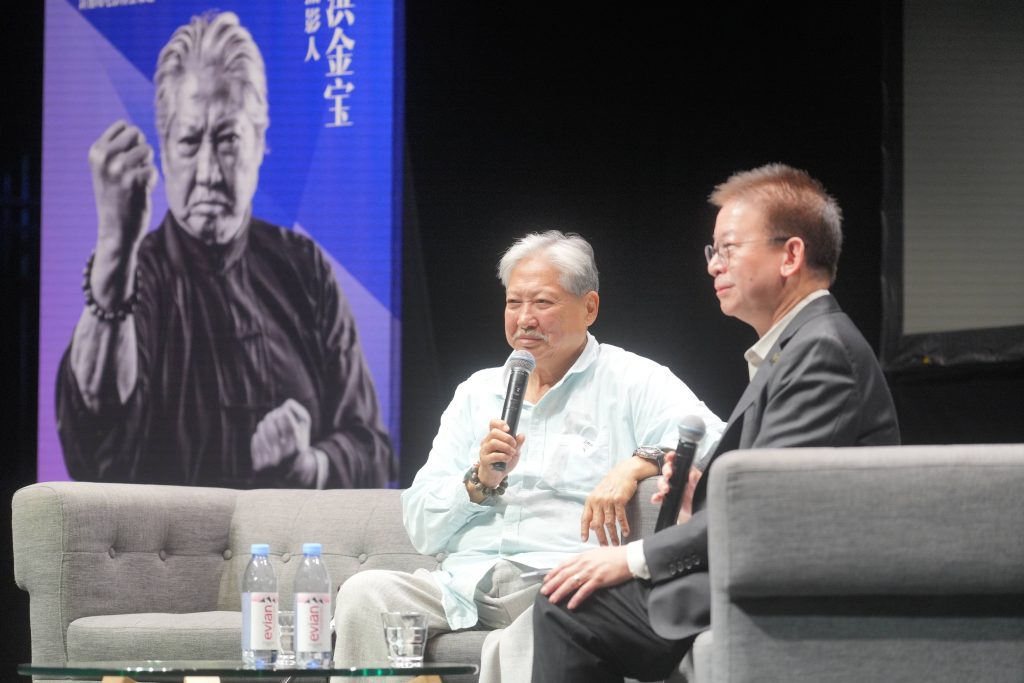
The discussion then moved to Sammo Hung’s early self-directed and written film, “Warriors Two,” which sparked a discussion about his style in filmmaking. As the first director to blend elements of action and comedy in films, Hung stated that the distinctiveness of his work lies in his focus on depicting ordinary people and their everyday lives, rather than just telling stories of a single hero saving the world. He carefully develops each character’s personality in detail.
Sammo Hung also recalled his experiences with film companies during the 1970s to 1990s. He explained that he established his own film company primarily to make more of his own films and to help other directors produce and shoot their works. However, he humorously noted, “Losing money was my responsibility, making money was others’ responsibility.” Despite the financial challenges, his passion for cinema kept him dedicated: “I love the art of filmmaking very much. Helping others, this and that… I’m always happy to do it.”
Discussing the current state of the Hong Kong film industry, Sammo Hung reminisced about the abundance of resources and opportunities available during the 1980s and 1990s. He lamented that new directors today face far fewer chances to make films, pointing out that even if a director’s debut film performs well at the box office, it remains difficult to secure the opportunity to make a second film. He advised young filmmakers to “know your vision, preserve your mind” — emphasizing the need for patience, continuous learning, and taking advantage of every opportunity that comes their way.
Sammo Hung also commented on the rapid development of film technology, he emphasized that new technologies are merely visual tools that assist action films, the quality of a film ultimately depends on the filmmakers’ effort and dedication. He used his recent film, “Twilight of the Warriors: Walled in” as an example, highlighting that actors from various generations in the film gave their best performances, which cannot be replaced by artificial intelligence or any technology. When asked about his expectations for “Twilight of the Warriors: Walled in,” Hung expressed his hope for strong box office results, believing that successful ticket sales could provide more opportunities and serve as a significant boost for action film creators.
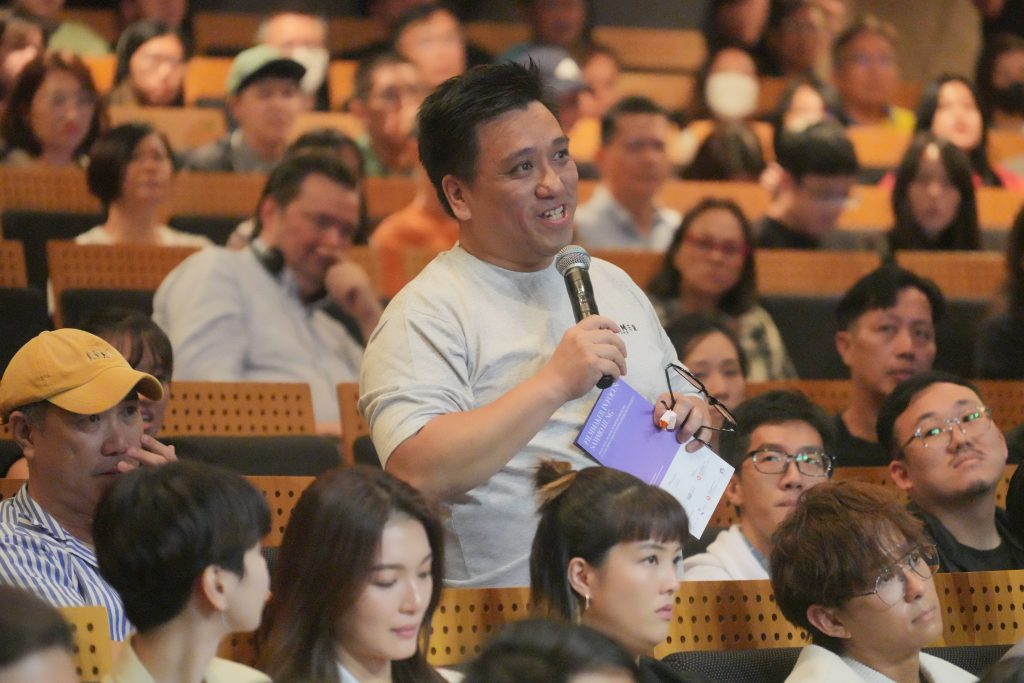
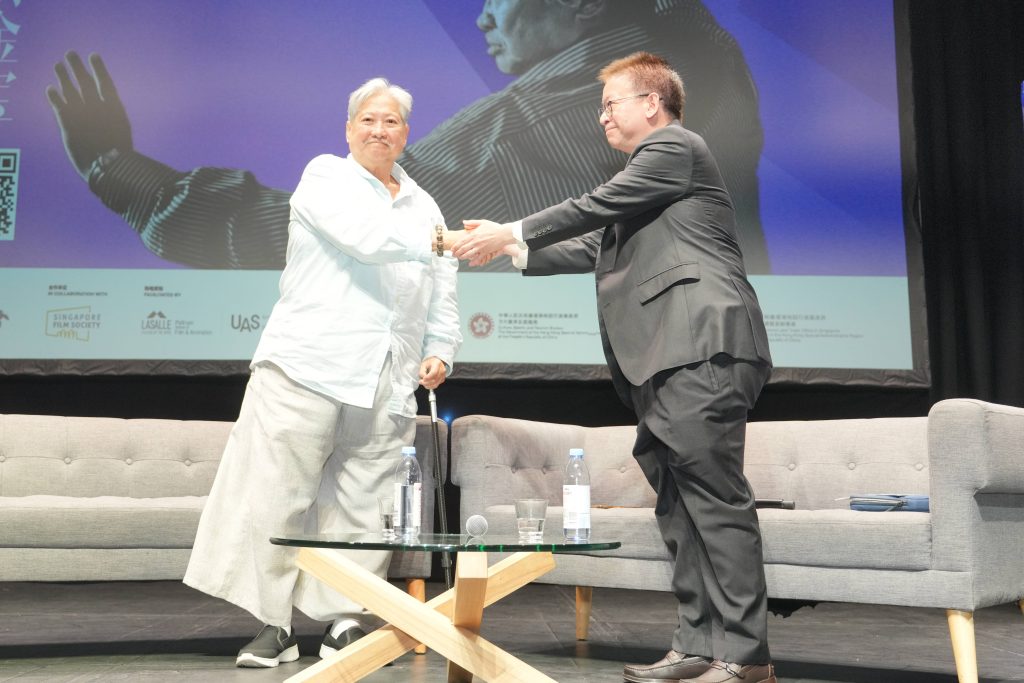
During the Q&A session, a local audience member expressed that after hearing Sammo Hung’s views on the current state of the Hong Kong film industry, they felt that the Singapore film industry was facing similar challenges, including a limited market and a narrow range of topics. The viewer asked for suggestions on how the film industries of Hong Kong and Singapore could collaborate, leveraging Hong Kong’s filmmaking talent and technology along with Singapore’s capital. The audience also suggested how Singapore’s geographical advantage could be used to attract Southeast Asian Chinese-speaking audiences and expand the market. Sammo Hung responded by referencing the example of African actor Nǃxau ǂToma, who had traveled to Hong Kong in the 1980s to make films, suggesting that there are opportunities for collaboration in the film industries of all countries. He emphasized, “I call upon the whole world, anyone with resources, to come and support our Hong Kong cinema.”
